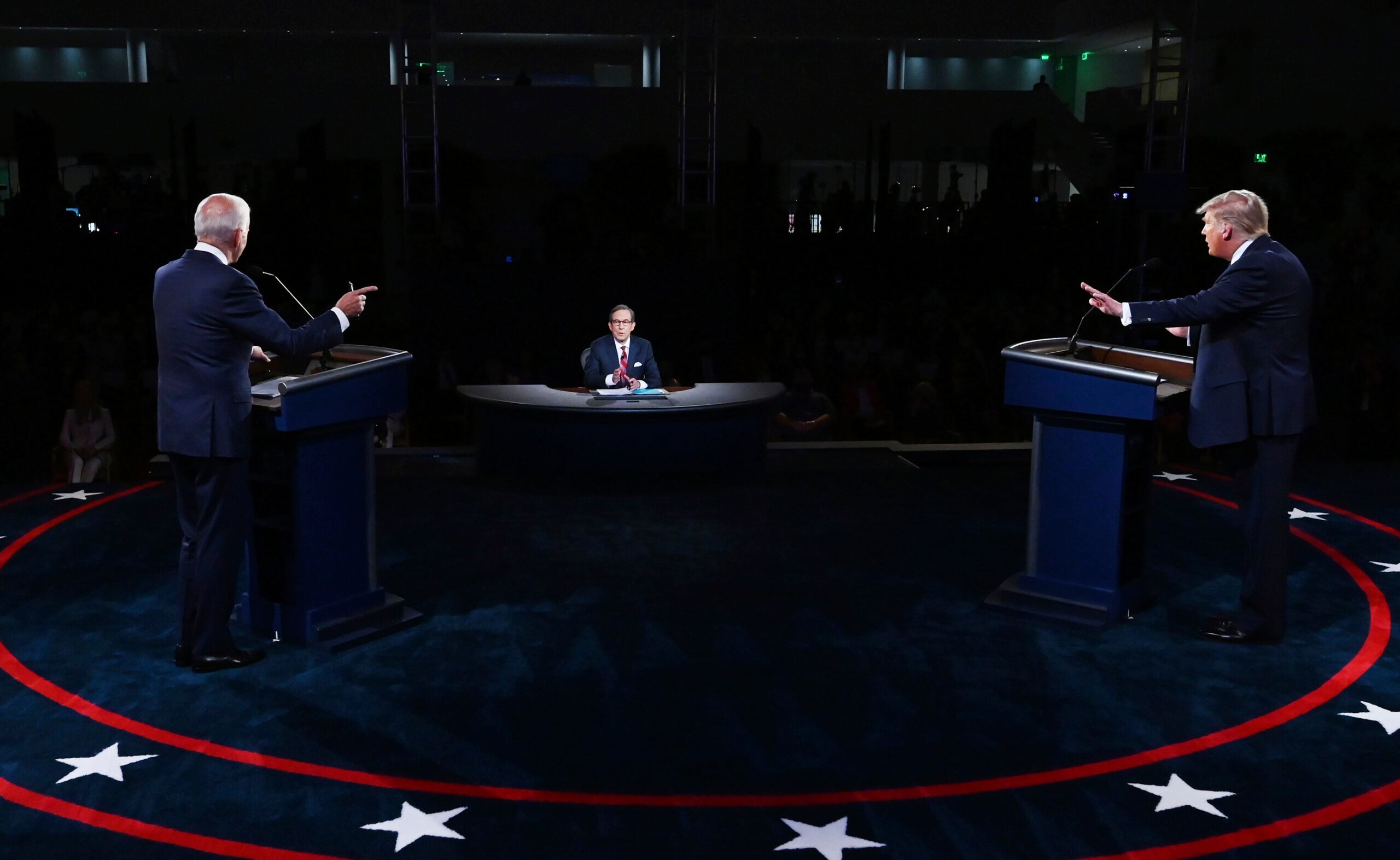Foreign observers note ‘chaos,’ ‘rancor’ in US debate
BEIJING (AP) — “Chaos, interruptions, personal attacks and insults,” one outspoken Chinese newspaper editor said of the U.S. presidential debate. An Australian counterpart said it was “swamped” by the “rancor engulfing America.”
The first debate pitting Republican President Donald Trump against Democratic challenger Joe Biden was not a highlight of political oratory in the eyes of many overseas.
Yet interest ran high for its potential impact on what may be the most consequential U.S. election in years, now just over a month away.
Observers looked for possible impact on financial markets and currencies, although the reaction was muted overall. Share prices slipped further in Japan and the dollar weakened against the Japanese yen and the euro, while U.S. futures were lower, auguring a weak opening on Wall Street.
The debate itself went as expected, said Jeffrey Halley, a senior market analyst at Oanda.
“Markets have remained calm as no policy surprises have emerged from the debate so far,” he said. “My initial thoughts are the debate will not move the needle on the Democrat lead in the national polls.”
The greater worry is over how tight the race might be and whether a delay in election results might prove disruptive, said Stephen Innes of AxiCorp.
“A highly polarized and possibly legally contested U.S. election is just around the corner,” Innes said. “With mail-in votes likely to be too high (and potentially questioned), there is a chance that we still will not know the result by Inauguration Day with constitutional chaos ensuing.”
Hu Xijin, editor of China’s nationalistic Communist Party tabloid Global Times, offered his opinion on the newspaper’s official microblog, writing that the “chaos, interruptions, personal attacks and insults” on display were a reflection of America’s “overarching division, anxiety and the accelerating erosion of the system’s original advantages.”
“I used to admire this kind of televised debate in American politics, but I have much more mixed feelings when watch it again now,” wrote Hu, who personally and through his paper routinely attacks American policies.
“Indeed, the overall image of the United States is growing more and more complicated in my eyes,” Hu wrote.
The editor-at-large of the newspaper The Australian, Paul Kelly, described the debate as a “spiteful, chaotic, abusive, often out-of-control brawling encounter with both candidates revealing their contempt for each other.”
“The rancor engulfing America swamped the first Trump-Biden debate,” Kelly wrote.
While Trump surely energized his base, he “never landed a political knock-out blow,” and Biden occasionally faltered but “showed he could fight,” he wrote, adding, “America faces a dangerous several weeks.”
A columnist for the newspaper, Peter Hoysted, called the debate a “shout-athon” and a “verbal shambles” that reflected American political life and the “yawning gap between the left and right.”
Tim Wilson, a lawmaker in Australia’s conservative government, was frustrated by the debate’s lack of policy focus.
“For most part, it was a slanging match between President Trump and Vice President Biden. I’ve got to say, I thought it was pretty unedifying in terms of a discussion, not just about the future of America, but ultimately because of the might of the United States, about the rest of the world as well,” Wilson told Australian Broadcasting Corp.
Amanda Wishworth, a lawmaker in Australia’s center-left Labor Party, said, “A lot of people would be scratching their heads, especially here from Australia, where, believe it or not, our politics is a little bit more gentle than the U.S. of A.”
Foreign policy issues were largely absent from the debate, although Trump slung accusations that China had paid Biden’s son Hunter for consulting work and Biden attacked Trump’s trade deals with China for failing to deliver benefits.
Trump also repeatedly blamed China for the coronavirus pandemic that has killed more than 1 million people globally and laid waste to economies in the U.S. and other nations. Trump also said he reduced the threat to the U.S. by banning travel from China, although in fact he only restricted it.
In the Mideast, the largely domestic debate drew raised eyebrows when Biden at one point said “inshallah” as Trump hedged on saying when he would release his tax returns. “Inshallah” in Arabic means “God willing.” It also can be used in a way to suggest something won’t ever happen. Al-Arabiya, a Saudi-owned satellite channel based in Dubai, and The National, a state-linked newspaper in Abu Dhabi, both published articles noting Biden’s use of the word.
A Emirati political scientist, Abdulkhaleq Abdulla, wrote on Twitter that he saw the debate as a “tumultuous verbal battle.”
“How did America reach this level of political decline?” he wrote.
